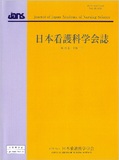Japanese
English
- 販売していません
- Abstract 文献概要
- 参考文献 Reference
要旨
目的:人工股関節全置換術(THA)を受ける高齢患者のSEIQoLの変化および疾患特異的尺度,健康関連QOLとの関連を明らかにする.
方法:初回THAを受ける65歳以上の患者30名を対象に,入院時,退院時,退院後6か月時で,SEIQoL-DWの半構造化面接及び疾患特異的尺度(JHEQ),健康関連QOL(SF-8TM)の質問紙調査を実施した.
結果:THAを受ける患者のSEIQoL Index Scoreは経時的に有意な点数の上昇が認められた.SEIQoL Index ScoreとJHEQ,SF-8TMとの関連は時期ごとに有意に関連する内容が異なっていた.
結論:THAを受ける高齢患者の術後QOLの改善が示唆された.また,入院時,退院時,退院後6か月時の時期により,重要視するQOLの内容が変化することが示唆された.
Purpose: To elucidate the changes in Schedule for the Evaluation of Individual Quality of Life (SEIQoL) and the relationships between SEIQoL and a disease-specific scale as well as healthrelated QOL in elderly total hip arthroplasty (THA) patients.
Methods: The subjects were 30 patients aged ≥65 years undergoing a first THA. Semi-structured interviews with the SEIQoL-Direct Weighting (DW) and questionnaire surveys with a diseasespecific scale (Japanese Orthopaedic Association Hip-Disease Evaluation Questionnaire; JHEQ) and health-related QOL (8-item Short Form Health Survey; SF-8TM) were conducted at hospital admission, discharge, and 6 months after discharge.
Results: The SEIQoL Index Score rose significantly with time in THA patients. In the relationships between the SEIQoL Index Score and the JHEQ as well as SF-8TM, differences in significantly related content were seen at each point in time.
Conclusion: The results suggest that there were postoperative improvements in the QOL of elderly THA patients. They also suggest that the content of the QOL that is regarded as important differed at each time point, namely, hospital admission, discharge, and 6 months after discharge.
Copyright © 2020, Japan Academy of Nursing Science. All rights reserved.


